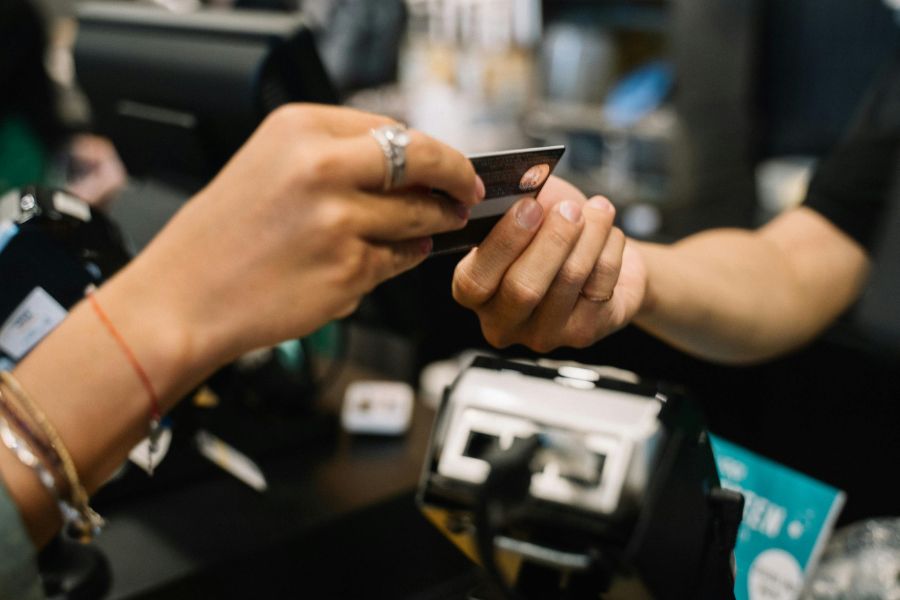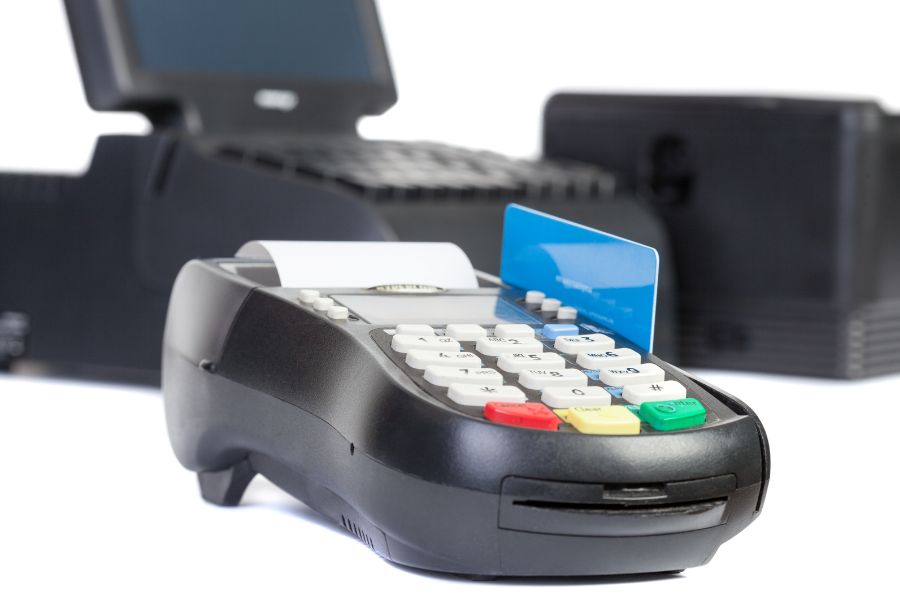The Control of Smoking Products for Public Health Act 2024 (Act 852), which comes into effect on October 1, introduces a comprehensive framework for regulating the sale and use of vaping products in Malaysia. With new Malaysia vape regulations surrounding product registration, packaging, labeling, and public smoking restrictions, vape stores must adapt quickly to ensure compliance with the law. This article explores how stores can navigate these changes to stay legally compliant and continue operating smoothly.
Highlights:
- Malaysia introduces stricter controls on vape products, including mandatory product registration, advertising bans, sales restrictions to minors, and standardized packaging to combat underage use and promote public health.
- Vape stores can navigate the evolving landscape by ensuring full compliance with product registration, adhering to packaging standards, avoiding promotional activities, and implementing robust age-verification processes.
Updates on The New Vape Regulations in Malaysia
Malaysia vape regulations are set to become stricter starting June 2024, addressing the surge in underage use. The Public Health (Control of Smoking Products) Act 2024 (Act 852) introduces significant changes to the industry.
Key Changes:
- Product Registration: Tobacco products, smoking materials, and their alternatives must be registered before importation, manufacturing, or distribution. Violations may result in fines of up to MYR 30,000 and imprisonment for individuals, with corporations facing fines as high as MYR 300,000.
- Restrictions on Advertising: Advertising, promotional activities, and sponsorships related to tobacco products are banned under the new law. Those who breach this regulation face severe financial and legal consequences.
- Prohibition of Sales to Minors: Selling tobacco-related products to individuals under the legal age is now explicitly outlawed. Penalties include varying levels of fines and potential imprisonment.
- Packaging Standards: Specific rules for packaging and labeling must be followed. Non-compliance leads to penalties equivalent to those for unregistered products.
- Non-Smoking Areas: The Minister of Health is authorized to designate non-smoking zones in public spaces. Offenders can incur fines of up to MYR 5,000.
- Emergency Powers: In urgent situations, a special committee may impose temporary restrictions on tobacco products, based on recommendations from the Director-General of Health.
Malaysia’s vaping market previously operated with limited oversight. Nicotine was removed from the Poisons Act in March 2023, and a consumption tax of MYR 0.40 per milliliter was introduced for nicotine-containing e-liquids the following month. Despite being a leading global e-liquid producer, the country has faced challenges with registration and compliance, with only 10 businesses registering under the tax scheme by April 2023.
The relaxed framework contributed to a sharp rise in vape use, particularly among 15 to 24-year-olds, where usage rates rose from 1.1% in 2011 to 8.6% in 2023. Act 852 aims to bridge these regulatory gaps while addressing public health concerns.
This legislation signals a shift toward tighter control of vaping products in Malaysia, impacting users, retailers, and manufacturers alike.
The Ways Vape Stores Can Adapt to Malaysia’s New Regulations
Standard Insights’ study revealed that cigarettes (57.8%) were the most consumed tobacco product, followed by e-cigarettes (32.6%). Older respondents (those over 45) smoked cigarettes more frequently (64.3%), while younger respondents (aged 18-24) preferred e-cigarettes (65.6%). These trends highlight the importance of vape stores adapting to Malaysia’s vape regulations to cater to the shifting preferences of younger consumers while remaining compliant with Malaysia vape regulations.

Meeting Legal Requirements
Malaysia vape regulations are essential for vape stores to operate smoothly. Product registration with the Ministry of Health is a primary requirement. Retailers must verify that all nicotine-containing e-liquids are registered before distribution and maintain compliance records.
Working closely with suppliers is necessary to ensure products meet regulatory standards. Stores must verify the legitimacy of their suppliers and conduct regular audits to avoid carrying non-compliant products.
A compliance framework should be set up at every stage of operations from sourcing to sale, to minimize the risk of legal penalties. Regular staff training and proactive communication with regulatory bodies can help businesses stay updated on changes and maintain legal adherence.
For example, a vape store in Malaysia that sells nicotine-containing e-liquids must first ensure these products are registered with the Ministry of Health. If the store sources e-liquids from a supplier, it must verify that the supplier has registered the products. Failure to do so could result in legal penalties or product recalls.
Improving Staff Knowledge and Practices
Staff must understand the legal responsibilities of selling vaping products. This includes enforcing age restrictions and identifying non-compliant items. Conduct monthly training sessions to update employees on how to verify customer identification and handle queries about legal restrictions. Clear communication equips staff to avoid inadvertent violations, such as selling to minors.
Use role-playing exercises to prepare employees for real-world scenarios, like identifying fake IDs or explaining why certain products are unavailable.
Modernizing Technology and Processes
Modernizing technology and processes is essential for vape stores adapting to Malaysia’s stringent vaping regulations. With Malaysia vape regulations becoming more complex, utilizing modern tools and refining operations can help businesses thrive while adhering to the law.
Digital tools streamline compliance by managing regulatory requirements efficiently. For instance, vape retailers can use specialized inventory management systems to track registered products, ensuring only approved items are sold. These systems can flag non-compliant stock, reducing the risk of fines or penalties. Investing in automated solutions for record-keeping simplifies audits and maintains up-to-date documentation.
Cloud-based platforms enable real-time collaboration and accessibility. Vape businesses operating across multiple locations can utilize cloud systems to synchronize inventory and sales data, ensuring seamless operations and transparency.
Another emerging technology, Artificial intelligence (AI) can enhance customer engagement and compliance efforts. For example, AI-powered customer verification tools can enforce age restrictions by scanning IDs, minimizing the risk of underage sales. Predictive analytics can further support supply chain management, ensuring timely restocking of compliant products while avoiding overstocking non-compliant items.
Responsible Marketing and Advertising
Vape stores must adhere to strict Malaysia vape regulations regarding the marketing and advertising of vaping products in Malaysia. Non-compliance with these rules can result in legal consequences and harm to a brand’s reputation.
Advertising should not target young people. The Malaysian government prohibits marketing efforts that appeal to minors, including the use of influencers or social media campaigns aimed at younger audiences. Vape stores must avoid advertising on platforms that attract minors and refrain from using imagery or slogans that could appeal to this demographic.
Marketing materials must also avoid making unsubstantiated health claims. The Ministry of Health in Malaysia can impose penalties on businesses that make misleading statements about the health benefits of vaping or suggest that vaping is a healthier alternative to smoking without scientific backing. It’s vital for vape stores to ensure that their messages are accurate and in line with the law.
Vape stores must follow strict digital marketing rules for age-restricted products. Websites must block underage users, and social media campaigns must comply with advertising standards, including clear warnings about the legal purchase age. Compliance with these regulations helps protect the brand from legal risks.
Preparing for Long-Term Adjustments
Preparing for long-term adjustments is vital for vape businesses to adapt sustainably to Malaysia vape regulations. This approach requires strategic planning and investment in practices that ensure compliance while fostering growth and resilience.
A comprehensive compliance framework is essential. Vape stores should implement systems to regularly monitor changes in regulatory requirements, ensuring timely adjustments.
For instance, using legal advisory services or automated compliance software can keep businesses informed about updates to product registration or labeling standards. Regular audits further reinforce adherence, minimizing risks of non-compliance.
Building strong relationships with suppliers and manufacturers helps secure a steady supply of compliant products. Collaborating with trusted partners ensures that only registered and properly labeled items are stocked, reducing potential regulatory breaches. Businesses can also advocate for suppliers to meet the required standards, creating a more compliant supply chain.
How ConnectPOS Supports Compliance with Malaysia Vape Regulations
ConnectPOS can help vape businesses comply with Malaysia’s vape regulations by providing advanced features tailored to tracking inventory, ensuring product compliance, and maintaining accurate sales records. This is how it supports compliance:
- Vape Store POS Designed for Growth: ConnectPOS provides vape stores with the tools needed to adapt to Malaysia’s regulations while driving business growth. The system integrates next-generation technologies like API Integration and a Microservice structure, making it easy for businesses to adjust to market changes and new laws.
- Simplified Operations: Real-time data insights and automation simplify day-to-day tasks, helping businesses grow sustainably. ConnectPOS provides tailored tools that support smooth operations, allowing store managers to focus on expanding their customer base while adhering to new regulatory requirements.
- Personalized Support: ConnectPOS offers personalized assistance from a knowledgeable support team, available in your preferred language. This ensures that vape stores can implement and maintain their POS system with ease, meeting legal obligations without complexity.
- Comprehensive POS Features: ConnectPOS supports multi-location management, centralizing all sales, inventory, and performance data. This gives store owners the ability to track key metrics and make informed decisions while maintaining regulatory compliance across different locations.
- eCommerce Integration: Vape stores can connect to eCommerce platforms, supported by age verification, product categorization, and compliance management features. This integration allows businesses to expand their reach while staying aligned with Malaysia’s vape regulations.
- Efficient Order Fulfillment: ConnectPOS facilitates quick order fulfillment with an international standard process, including solutions like Click-and-Collect. These features help extend business reach while maintaining compliance with the latest laws.
- Detailed Operational Insights: ConnectPOS provides actionable data analytics reports about customer behavior and preferences, helping vape stores tailor their product offerings and ensure compliance with product labeling and sales tracking regulations.
- Reward Program Integration: With ConnectPOS, stores can introduce loyalty programs that reward regular customers with store credits, points, and personalized incentives. This not only builds customer retention but also supports compliance with reward system regulations.
- Flexible Business Growth: ConnectPOS integrates smoothly with distributors, payment systems, accounting tools, CRM platforms, and marketing systems. This integration provides vape stores with the flexibility to scale operations both online and in-store, all while staying compliant with Malaysia’s regulatory landscape.
Through these features, ConnectPOS enables vape retailers to optimize operations while meeting Malaysia vape regulations, ensuring both legal compliance and smooth business operations.
FAQs: Malaysia Vape Regulations
- How can stores prevent the sale of vaping products to minors?
To comply with the new law, stores should implement strict age verification systems. This can include checking IDs at the point of sale, both in-store and online. Retailers should train staff to be vigilant in enforcing these age restrictions and consider using digital age verification tools integrated into POS systems to ensure compliance.
- How can vape stores comply with product registration requirements from Malaysia vape regulations?
Vape stores must ensure that every tobacco or smoking product, including vaping devices and e-liquids, is registered before being imported, manufactured, or sold in Malaysia. Stores should maintain up-to-date records of all products, ensuring compliance with the registration process to avoid fines or penalties. Implementing inventory management systems like ConnectPOS can help track registration statuses.
- What steps should be taken to comply with non-smoking area regulations?
Vape stores must ensure that they adhere to designated non-smoking areas by clearly marking such zones in-store or on their premises. Employees should be trained to enforce these rules and guide customers accordingly. It may also be beneficial for vape stores located in public spaces to display signage indicating where smoking or vaping is not allowed, as required by the new regulations.
Conclusion
The Malaysia vape regulations require vape stores in Malaysia to adapt their operations to meet updated legal standards. Product registration, revised marketing approaches, and staff training will be key to avoiding legal challenges and maintaining consumer confidence. Staying proactive and informed about the changes is necessary for businesses to continue growing and operating legally.
For stores looking to simplify compliance with the new regulations, ConnectPOS provides a user-friendly, integrated point-of-sale system. With tools to track product registration, manage sales, and monitor compliance, ConnectPOS helps vape businesses stay ahead of the curve. Contact us to learn how ConnectPOS can support your business in adapting to these new rules.
ConnectPOS is a all-in-one point of sale solution tailored to meet your eCommerce POS needs, streamline business operations, boost sales, and enhance customer experience in diverse industries. We offer custom POS with features, pricing, and plans to suit your unique business requirements.




